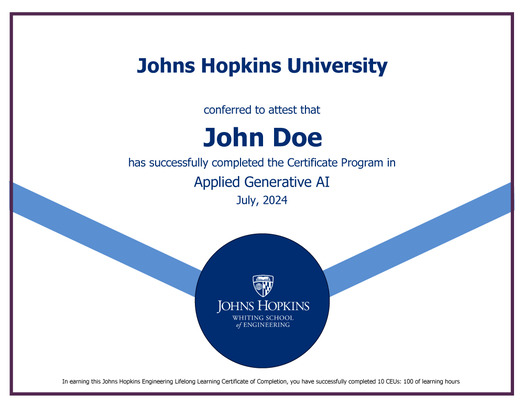Generative AI is Revolutionizing Business Solutions
Generative AI is transforming industries by automating creative tasks, enhancing customer experiences, and optimizing business processes. According to a Gartner report, more than 80% enterprises will have used Generative AI APIs or deployed Generative AI-enabled applications by 2026. This rapid adoption underscores the urgent need for professionals who can design and implement AI solutions, positioning them at the forefront of this AI-driven transformation.
Gain Practical Skills to Build and Deploy Generative AI Solutions
This program emphasizes hands-on learning, equipping you with the technical skills needed to create and implement AI solutions for business challenges. Whether you're a technology professional, data professional, technology consultant, technical manager or a STEM graduate, you’ll learn to work with Large Language Models (LLMs). The curriculum combines theory with practical case studies, enabling you to apply Generative AI in your workplace immediately.
Bridge the Generative AI Talent Gap
Despite the widespread adoption of AI, there is a growing shortage of professionals skilled in Generative AI technologies. This gap presents a lucrative opportunity for those with expertise in designing AI models. By completing this program, you'll gain the in-demand skills that businesses are actively seeking, making you a preferred candidate for potential employers.
Work on Hands-on Projects and Case Studies
In addition to theoretical knowledge, the program offers practical experience through hands-on projects and case studies under the guidance of industry experts. You’ll work on practical business problems, giving you insights that are directly applicable to the industry.




















